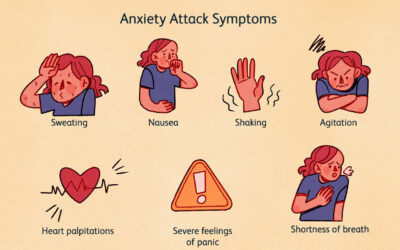How often do you consider scheduling an appointment with a therapist only to talk yourself out of getting help? It can be hard to pinpoint the perfect time to see a counselor. In hindsight, you may look back and say, “that would have been a good time to visit with our therapist”, but it can be difficult to recognize those moments when they are happening. Here are a few signs that may point to a good time for scheduling an appointment with a Salt City Mental Health counselor in Bountiful, Utah.
When life’s problems interfere with your daily living.
If you find that problems you are dealing with are interfering on a regular basis, or consuming a large portion of your day, then it is likely that you could benefit from seeing a therapist. An example of this would be someone who suffers from anxiety and worries that their business will fail. Yes, this is a common concern for any business owner, but if your anxiety is preventing you from checking email because you may open something that negatively impacts the business, your anxiety is interfering with your daily living. Another example would be an inability to take proper care of children, or go to work, because it is too difficult to get out of bed and face the world. This lack of energy and motivation to do basic tasks could be the result of depression and is unlikely to go away on its own.
How often do you consider scheduling an appointment with a therapist only to talk yourself out of getting help? It can be hard to pinpoint the perfect time to see a counselor. In hindsight, you may look back and say, “that would have been a good time to visit with our therapist”, but it can be difficult to recognize those moments when they are happening. Here are a few signs that may point to a good time for scheduling an appointment with a Salt City Mental Health counselor in Bountiful, Utah.
When life’s problems interfere with your daily living.
If you find that problems you are dealing with are interfering on a regular basis, or consuming a large portion of your day, then it is likely that you could benefit from seeing a therapist. An example of this would be someone who suffers from anxiety and worries that their business will fail. Yes, this is a common concern for any business owner, but if your anxiety is preventing you from checking email because you may open something that negatively impacts the business, your anxiety is interfering with your daily living. Another example would be an inability to take proper care of children, or go to work, because it is too difficult to get out of bed and face the world. This lack of energy and motivation to do basic tasks could be the result of depression and is unlikely to go away on its own.
Know the difference between average and clinically significant anxiety.
According to the Anxiety and Depression Association of America, 40 million Americans over the age of 18 are affected by anxiety. Anxiety is not a bad thing, it protects you. Unfortunately, anxiety can negatively impact anyone at any point, even if it is uncommon for you to experience anxiety. How do you know if you are experiencing average or clinically significant anxiety? Here are 3 simple questions to ask yourself. 1. How high is my anxiety? For this question, think of the pain scale and substitute anxiety for pain. In the therapy world, this scale is called the Subjective Units of Distress (SUD) scale. Average anxiety scores a 3 or below on the SUD scale and should dissipate quickly. 2. What happens if I don’t do what my anxiety tells me to do? The more your distress increases with this question, the more likely it is you have a problem with anxiety. 3. How rigid is my behavior when I have anxiety? If you find that your anxiety is making most of your decisions, or you must behave in a specific way, you may have clinically significant anxiety. A Salt City Mental Health therapist in Bountiful, Utah can teach you skills to help alleviate the pain caused by heightened anxiety.
Recognize how your behavior is affecting your family and/or friends.
When you are stressed, your friends and family can often tell. It is not uncommon for you to be unaware of how much of an impact your emotions have on your spouse, kids, co-workers, and others who are close to you. A Salt City Mental Health therapist in Bountiful, Utah can help you learn mindfulness skills to assist in being present and creating an awareness of how your emotions are affecting you and your environment. If you find that your emotions are consistently having a negative impact on those you care about, or people are constantly asking if you are doing ok, it is a good time to consider seeing a therapist.
Trust your instincts of you just feel “off” but don’t know why.
This is often one of the best times to see a mental health professional. Talking yourself out of seeking help because you don’t know what you will say, or your therapist may think you have no “real” problems can compound the issue. A trained Salt City Mental Health therapist in Bountiful, Utah can help you identify what is causing the distress and teach you the appropriate skills to manage it. Trust yourself when you feel something is wrong. Acting early can save you time and suffering.
You do not have to have extreme circumstances to see a therapist. Anyone can benefit from processing their daily stressors with counselor. If you are in need of talking with someone who can assist in easing your daily stressors, contact a Salt City.
Can I say too much to my therapist?
I was talking to an acquaintance the other day and she asked me if there was anything that should not be discussed with a therapist. I chuckled to...
“Alphabet Soup” by: Lindsay Goeckeritz
In our family we do kind. We do hugs. We do trust. We do second chances. We do loud (really well!) We do love. We also do mental illness-with it’s...
Identifying Symptoms of Anxiety
Lately, anxiety has been a major focus in the field of mental health. The media is highlighting increased levels of anxiety in our children and in...



